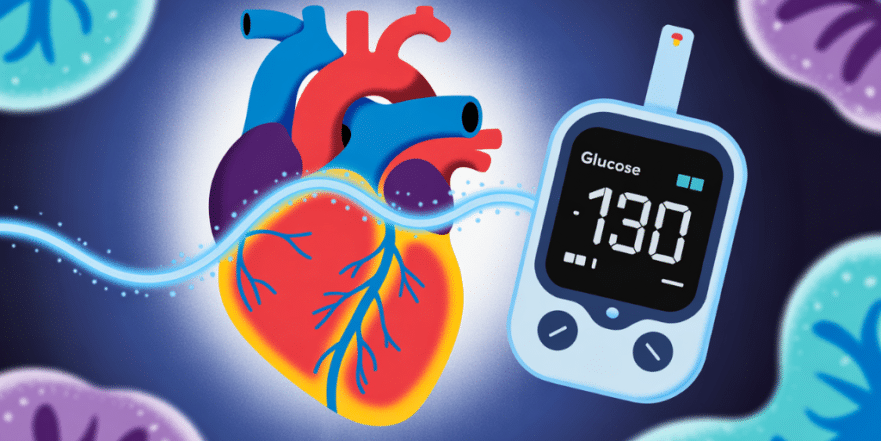
If you have type 2 diabetes, you’re likely focused on managing your diet, exercise, and blood sugar levels. But what if some common medications—and even what seems like good blood sugar control—could be silently increasing your risk for a life-threatening heart condition?
A groundbreaking new study from researchers at Amsterdam UMC sheds light on surprising factors that can lead to sudden cardiac arrest (SCA) in people with type 2 diabetes. SCA, a condition where the heart abruptly stops beating, is a major health concern, and if you have diabetes, your risk is already double that of the general population. This new research helps you and your doctor understand the bigger picture of heart safety.
Key Takeaways
- Common Medications Pose a Risk: Certain widely used drugs, including some antibiotics and stomach medications, were linked to a higher risk of sudden cardiac arrest.
- ‘Good’ Blood Sugar Can Be Deceptive: Very low fasting blood sugar, often seen as a sign of successful diabetes management, was associated with a 150% higher risk of SCA in people without a history of heart disease.
- Kidney and Heart Health are Crucial: For those who already have heart disease, kidney-related problems and heart failure were identified as major warning signs for SCA.
The Unexpected Culprits in Your Medicine Cabinet
You might be surprised to learn that several medications you could be prescribed for common ailments may affect your heart’s rhythm. The study found that drugs known as “QTc-prolonging” medications were associated with an increased risk of SCA. These aren’t rare or obscure drugs; they include common macrolide antibiotics (often used for respiratory infections), the antipsychotic drug haloperidol, and prokinetics, which are used to treat stomach issues like nausea and bloating. These findings suggest that you should always discuss your full medication list with your doctor to understand how different drugs might interact or affect your heart.
When ‘Good’ Blood Sugar Becomes a Danger
One of the most startling findings from the study relates to your blood sugar levels. While keeping high blood sugar in check is the cornerstone of diabetes care, researchers discovered that very low fasting blood sugar levels could be dangerous. In people with type 2 diabetes who had no previous heart disease, extremely low blood sugar was linked to a 150% higher risk of sudden cardiac arrest. This is a critical insight because it challenges the idea that lower is always better. It highlights the importance of avoiding severe hypoglycemia (low blood sugar) and maintaining a stable, balanced glucose level rather than just aiming for the lowest possible numbers.
For Those with Existing Heart Disease
If you already have a history of heart problems, the study reinforces the need for vigilance in other areas. The researchers found that for this group, kidney-related issues were a strong predictor of SCA. Specifically, the presence of albumin in the urine (albuminuria), a sign of kidney damage, and diagnosed heart failure were significantly linked to a higher risk. This shows that for you, managing diabetes isn’t just about glucose—it’s about a comprehensive approach that includes protecting your kidney and heart function.
A New Perspective on Diabetes Care
This research urges a shift in how you and your healthcare providers approach diabetes management. It’s not enough to focus solely on blood sugar. A truly safe and effective treatment plan considers the potential side effects of all medications and the hidden dangers of overly strict glucose control. By understanding these newly identified risks, you can have more informed conversations with your doctor to create a personalized strategy that protects your heart for the long term.
References
- Harms, P., et al. (2024). “Novel modifiable risk factors for sudden cardiac arrest in patients with type 2 diabetes in primary care: a nested case-control study.” Presented at the European Association for the Study of Diabetes (EASD) Annual Meeting. Further details can be found via the organization’s publications. https://www.easd.org
- American Heart Association. (n.d.). “Sudden Cardiac Arrest.” https://www.heart.org/en/health-topics/cardiac-arrest/about-cardiac-arrest

